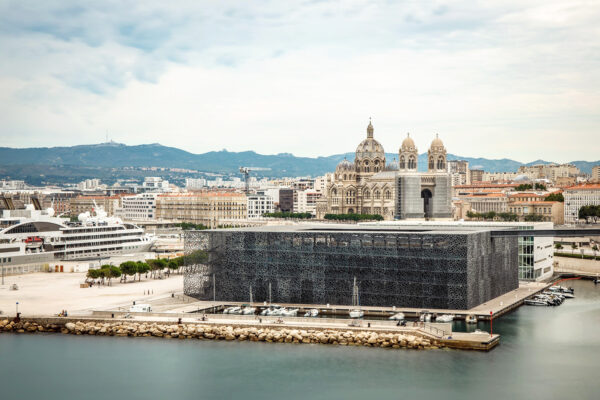
All eighteen regions of France — thirteen in Europe and five overseas, counting Mayotte — hold assembly elections this Sunday and next. The assemblies in turn elect regional presidents, whose powers are more limited than those of American and German state governors.
More than 4,000 council seats across 96 departments — the administrative level between regions and municipalities — are also contested.
These are the last major elections in France before the presidential and National Assembly elections in April of next year. They are less a test of President Emmanuel Macron’s reelection prospects than a preview of whether he will be challenged by the center-right or far right.
Here is everything you need to know.
Bottom lines
- Macron’s liberal La République En Marche! is unlikely to win any regions. Founded in 2016 to support Macron’s presidential ambitions, it has weak local roots.
- The center-right Republicans, who are defending seven regions, will want to prove they can keep the far right at bay.
- Marine Le Pen’s National Rally (formerly National Front) hopes to win its first regional presidency, or presidencies, with relatively moderate candidates and supplant the Republicans as the main party of the right.
- The Socialists are not projected to lose (more) regions, but they will owe that to second-round support from the Greens and far left, which have both become more popular nationally.
What regions and departments do
Transportation takes up the bulk of regional budgets. Regions are also responsible for high schools and unemployment services, and they can provide financial aid to businesses.
The departments have jurisdiction over local roads, lower education, fire brigades and utilities.
Neither has much to say over security, but you wouldn’t know it from the election campaign, which has been dominated by law-and-order issues.
Electoral system
A two-round voting system is used to elect regional as well as departmental deputies. Unlike in national elections, when the top two vote-getters advance to the runoff, every party that wins at least 10 percent of the votes qualifies for the second round. Two candidates who win a combined 10 percent support can even join lists and still compete. To avoid first-round votes being “wasted”, large parties form alliances with many small parties.
For example, the Socialists have made pacts with the Communists, Greens and Jean-Luc Mélenchon’s France Unbowed.
En Marche allies with the centrist Democratic Movement (MoDem) and the social-liberal Radical Movement.
If a party wins over 50 percent in the first round, the second round is canceled. This seldom happens.
The party that places first in the second round wins a bonus of 25 percent of the seats in order to give it a governing majority.
Battlegrounds
National polls put the Republicans in first place with 24 to 27 percent support, National Rally second with 22-26 percent and En Marche, the Socialists and Greens in shared third place with 11-15 percent each.
But that tells us little, since the elections aren’t national. It’s more instructive to look at the “battleground states”.
The most closely watched is Provence-Alpes-Côte d’Azur, encompassing Marseille and the French Riviera, where Thierry Mariani, a former Republican transport minister who joined Le Pen in 2019, is projected to unseat the center-right Renaud Muselier. Winning a regional presidency for the first time would be a major step forward in Le Pen’s “detoxification” of National Rally from the xenophobic legacy of her father and predecessor as party leader, Jean-Marie.
The party also has a chance in Hauts-de-France in the northwest, but incumbent Republican president Xavier Bertrand is still ahead of the far right’s Sébastien Chenu by several points in the polls. Chenu, a former gay rights activist, appeals to a different constituency than Mariani: whereas National Rally voters in the south tend to be more affluent and socially conservative, its (potential) voters in France’s northern “Rust Belt” share its support for economic protectionism and opposition to immigration.
The left’s only chance of picking up a presidency appears to be in Pays de la Loire, on the Atlantic Ocean, where polls give either the Socialists’ Guillaume Garot, a former minister of food, or the Green party’s Matthieu Orphelin 32 percent support against 25-26 percent for the incumbent Republican. The two left-wing candidates have pledged to jointly contest the second round.
If there is an upset, it could come from Bourgogne-Franche-Comté, the central-eastern region on the border with Switzerland, where the few polls that have been conducted give Julien Odoul, formerly of the Socialist Party and now the far-right candidate, around 30 percent support. If En Marche, the Republicans and Socialists all qualify for the second round, that 30 percent may be just enough for Odoul to place first.
The situation is similar in Centre-Val de Loire, the region south of Paris, where the incumbent Socialist president, François Bonneau, and National Rally candidate Aleksandar Nikolic both got 30 percent support in the two polls that have been taken.
The far right’s Laurent Jacobelli has pulled ahead of Republican president Jean Rottner in the most recent survey conducted in the Grand Est, but that appears to be an outlier. Earlier polls had Rottner comfortably ahead.
In Normandy, Hervé Morin, a centrist who governs in coalition with the Republicans, is still several points ahead of the far-right candidate, Nicolas Bay.
The far right is expected to win the first round in Occitanie, which includes French Catalonia, but incumbent Socialist president Carole Delga is likely to prevail in the runoff. The rural south has for decades been the heartland of the French left.
On Réunion, in the Indian Ocean, the Republicans, Socialists and a local party are in a three-way tie for first place. The island is currently governed by the Republicans.
No polls have been conducted in Guadeloupe, French Guiana and Martinique.
In Auvergne-Rhône-Alpes, Brittany, Corsica, Île-de-France (Paris) and Nouvelle-Aquitaine, the incumbents are projected to win reelection.
